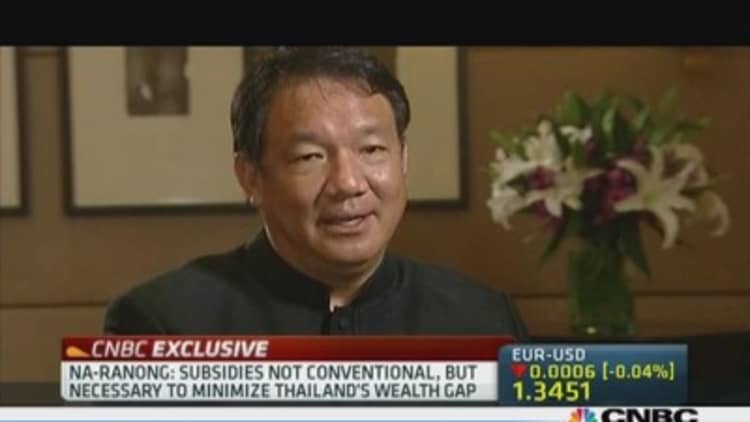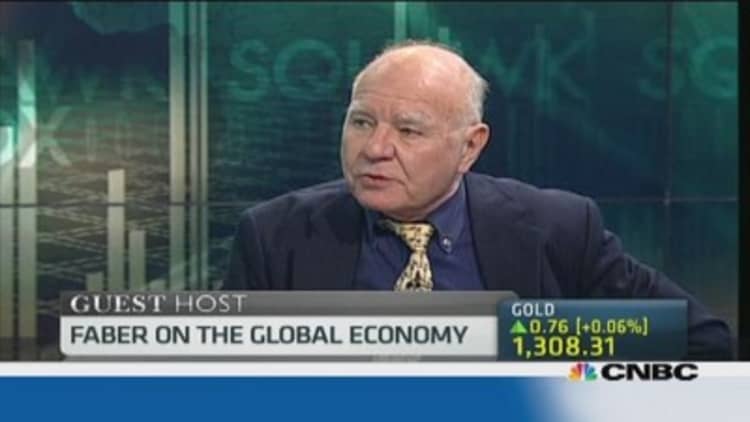
Thailand will not resort to capital controls to stem the outflow of hot money from its economy, even as the prospect of a scale-back in U.S. monetary stimulus looms ever larger, Deputy Prime Minister and Finance Minister Kittiratt Na-Ranong told CNBC.
Thai markets, together with emerging-market peers, have been left on tenterhooks since May when Federal Reserve Chairman Ben Bernanke first mooted the idea of reducing the central bank's $85 billion-a-month bond-buying program, which investors fear could trigger a massive outflow of funds from risk assets.
(Read more: Singapore CEO named Asia's business leader of the year)
According to official estimates reported by local media, foreign equity investors have pulled out a net $3.9 billion dollars from the country so far this year. The selling in recent weeks was exacerbated by widespread protest over an amnesty bill that has stoked concerns over political instability.
Kittiratt said he was not overly concerned about the exodus of funds.
"I keep saying that the money that flowed out from the country in the middle of this year, is actually money that shouldn't have come in at all," he told CNBC on the sidelines of the Asia Business Leaders Awards ceremony in Bangkok on Thursday.
"In Thailand, we have an abundance of financial resources both in international and local currencies. [So] when the so-called short term money moved out of the country, I didn't worry," he added.
(Read more: Thailand poised for $15 billion of debt sales)
A better-than-expected October jobs report from the U.S. last Friday has reignited the Fed taper fears in recent days.
Kittiratt, who has been openly concerned about the strength of baht which he blames for hampering the country's key export sector, said it's the "inflow" of funds he needs to worry about.
"We won't do anything on the outflow [of hot money]. We have ample financial resources both in foreign and local currencies. So the control, if it's ever imposed, when be on the inflow, not outflow," he said.
(Read more: Thailand: the old man of Southeast Asia)

Q3 GDP looms
On economic growth, Kittiratt avoided weighing in on the official third quarter gross domestic product (GDP) figures, which are due on Monday, as they are "backward looking."
Rather, he prefers to "look ahead" in terms of economic guidance.
While Kittiratt concedes that this year's GDP growth "may not be as impressive" due to "the delay in the implementation of infrastructure spending" worth 2 trillion baht ($64 billion), he remains optimistic about growth in the fourth quarter, saying that the peak tourism season at the year-end could give the economy a boost.
Thailand's economy entered a technical recession in the second quarter, registering a 0.3 percent quarter-on-quarter contraction, after shrinking 1.7 percent in the first quarter.
(Read more: Thailand's investors spooked by 'forgiveness)
On the political front, Kittiratt said he did not see the recent massive anti-government protests as posing a threat to the economy.
"Protests on the streets are a good sign of democracy. As long as we have confidence that there won't be violence and as long as we have confidence that those protestors have good reasons," he said.
- By CNBC's Li Anne Wong. Follow her on Twitter @LiAnneCNBC

